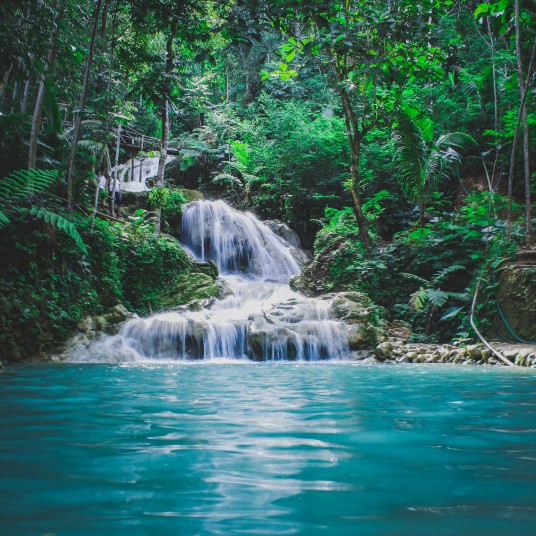Water is a natural resource, essential for life on Earth. It plays a part in all our daily activities, necessary for eating, washing and drinking, but also for social and technological activities. Water scarcity and pollution, however, mean that millions of people lack access to this most necessary of resources.
Over two billion people experience high water stress, while four billion suffer from a serious shortage of water at least for at least one month of the year, according to the 2019 United Nations World Water Development Report.
And the climate crisis is making the situation worse. There is less and less water available and this has become one of the main worries of international organizations. For this reason, the UN’s Agenda 2030 Sustainable Development Goal (SDG) 6 attempts to guarantee the availability of water and its sustainable management, as well as adequate sanitation for everyone.
“Over two billion people experience high water stress”
Responsible water use is fundamental. But before we talk about solutions, what are the problems that endanger such a precious resource?
What is water pollution?
Water pollution occurs when toxic substances, often chemical products or microorganisms, pollute a stream, river, lake, ocean, aquifer or other body of water, degrading its quality and effectively poisoning it for humans and the environment.
This degradation in water quality translates directly into environmental, social and economic problems.
Causes of water pollution
 Human beings are the main reason for the contamination of water, which can be affected in many ways:
Human beings are the main reason for the contamination of water, which can be affected in many ways:
🏭 Industrial waste: there are still many companies that fail to treat their waste and end up pouring huge quantities of contaminants from their industrial processes into rivers and the sea.
🌡 Global warming: temperature rises cause changes in water composition by reducing oxygen.
🌲 Deforestation: the source of underground sediment and bacteria, and the subsequent pollution of groundwater.
🐛 Pesticides: when they are used in farmland, pesticides filter through underground channels and reach water networks.
🛢 Oil: sometimes crude oil or gasoline products end up in the oceans through leaks when being transported. The consequences are terrible both for water and the biodiversity living in it.
🗑 Waste tips: often responsible for soil and groundwater contamination by introducing pollutants such as heavy metals like lead and mercury to the earth and water near the site.
🧻 Sewage: the UN says that over 80% of wastewater in the world reaches the sea and rivers untreated.
🧪Pharmaceutical and personal hygiene products: the WHO says there are studies that have found concentrations of chemicals from such products in sewage and drinking water.
In this video we show you what are the main causes and effects of water pollution.
Effects of water pollution
What does water pollution affect? Both the environment and the health of all living beings. As a result, we must ensure the availability of water, its sustainable management and sanitation for everyone, as called for in Sustainable Development Goal 6, adopted by the United Nations in Agenda 2030. The main effects of water pollution include:
🩺 Dangers to human health: Every year, water unfit for human consumption makes around a billion people unwell. Diseases transmitted by contaminated water include cholera, giardia and typhoid fever. Even in rich nations, accidental or illegal discharges from sewage treatment plants and runoff from farms and towns contribute to harmful pathogens in waterways.
🌾 Biodiversity loss: When water pollution causes the proliferation of algae in a lake or other marine environment, the introduction of recently introduced nutrients stimulates the growth of plants and algae which in turn reduces oxygen levels in the water. This lack of oxygen, known as eutrophication, suffocates plants and animals and can create ‘dead zones’ where water is essentially deprived of life. In certain cases, this flowering of harmful algae can also produce neurotoxins that affect wildlife, right from whales to sea turtles.
🐬 Change in aquatic habitats: To prosper, healthy ecosystems depend on a complex network of animals, plants, bacteria and fungi, all of which interact directly or indirectly among themselves. Harm to any of these organisms can create a chain reaction endangering entire aquatic environments.
💰 Economic loss: the World Bank said in a report that the deterioration of water quality worldwide was drastically reducing the economic potential of highly polluted areas.
Why is it important to avoid water pollution?
The Earth is a planet of water. No species that inhabits this planet can survive without it. But it is a limited resource. Only 2.5% of the planet’s water is freshwater, of which 69% is found in glaciers and ice, 30% in groundwater, 0.7% as permafrost and just 0.3% in lakes and rivers, the latter being the main daily source for human consumption.
“Only 2.5% of the planet’s water is freshwater”
 And the degradation of water quality and contamination means the amount of water available for our use is becoming ever scarcer:
And the degradation of water quality and contamination means the amount of water available for our use is becoming ever scarcer:
- 3 out of 10 people lack access to safe potable water services and 6 out of 10 lack access to safely-managed sewage treatment facilities.
- Water scarcity affects over 40% of the world population and this percentage is forecast to increase. Over 1.7 billion people currently live in water basins in which more water is used than is refilled.
- 4 billion people lack access to basic sanitary services such as toilets and latrines.
- More than 80% of the wastewater from human activities ends up in rivers or the sea untreated, causing pollution.
- Every day around 1,000 children die due to diarrheal diseases associated with a lack of hygiene.
- Approximately 70% of all water taken from rivers, lakes and aquifers is used for irrigation.
- Floods and other catastrophes related to water represent 70% of all deaths in natural disasters.
What can you do to avoid water pollution?
If you would like to help keep our water sources clean, there’s plenty you can do to prevent the pollution of rivers, lakes and the seas. Here are some simple tips you can follow day to day:
🚱 Shut off the tap and save water when you don’t need to use it. For example, when cleaning your teeth, washing yourself or cleaning the dishes. This helps prevent water scarcity and reduces the amount of contaminated water that needs treating.
🚽 Take care what you wash down the sink or toilet. Don’t discard oils, paper, hair or any other waste down drains.
❌ Avoid pesticides and fertilizers. This will prevent chemicals from seeping through to nearby water sources.
🗑Don’t throw waste into rivers, lakes or the ocean. Help clean up any garbage you see on beaches or in the countryside and throw it in the appropriate recycling container.
🌎 Take actions that help stop global warming. In this way, you will help avoid droughts and other such meteorological phenomena that can affect the availability of water.
SOURCES:
https://www.un.org/sustainabledevelopment/es/water-and-sanitation/
https://en.unesco.org/emergingpollutantsinwaterandwastewater
https://www.nrdc.org/stories/water-pollution-everything-you-need-know
https://news.un.org/en/story/2019/08/1044551